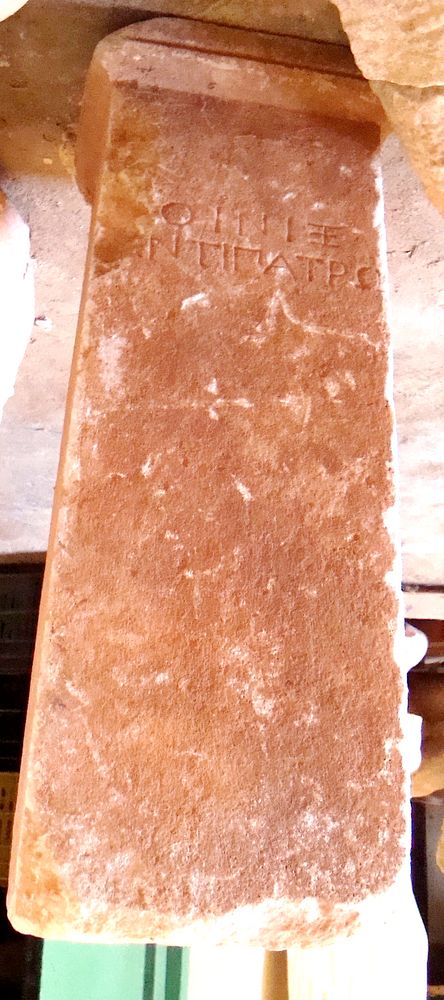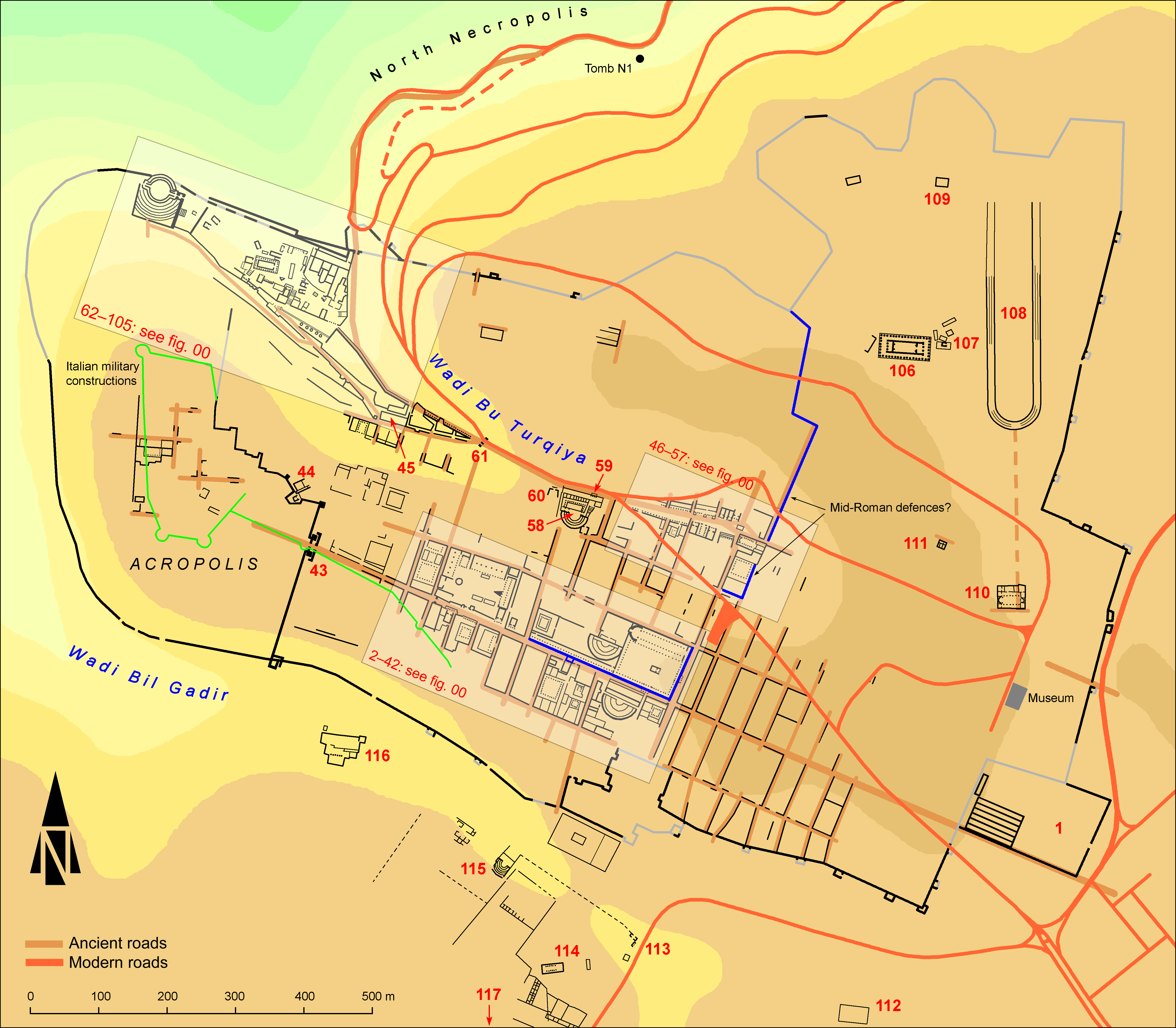EpiDoc XML:
IGCyr1322002
Trismegistos ID:
738869
Source description
Support: White marble tapering stele with a plain moulding on top of all four sides; still reddish from earth, chipped off on the left edge of the face and at the lower right angle; re-used on the opposite face for three epitaphs of Roman date (w: 0.20-0.23 × h: 0.60 × d: 0.155- 0.17).
Layout: Inscribed on the face (w: 0.20-0.22 × h: 0.54 × d: 0.155-0.17), beginning at 0.09 under the moulding; both lines were aligned following the left edge.
Letters: 0.02 without serifs; slightly dissymmetrical nu, broad alpha, xi with central hasta, large omicron.
Date: Probably fourth century BC (lettering).
Findspot: Found before 2010 at Cyrene ➚: exact findspot unrecorded; plausibly from one Necropolis.
Place of origin: Findspot.
Last recorded location: Cyrene Museum, inventory number missing. Seen by C. Dobias-Lalou in 2010 in Shahat: Cyrene Museum.
Text constituted from: Transcription from stone (CDL).
Bibliography
Not published before IGCyr 132200 ➚.
Cf. for the epitaphs on the opposite side, Chevrollier – Dobias-Lalou – Hussein 2021, pp. 28-29.
Text
French translation
Phoinix fils d'Antipatros.
English translation
Phoinix son of Antipatros.
Italian translation
Phoinix figlio di Antipatros.
Commentary
Whereas Antipatros is common in Cyrenaica at all periods, Phoinix is here attested for the first time in the region. However it is no rare name in Greece, referring to the ethnic (Bechtel 1917, p. 544) and probably also to the mythologic figure of Achilleus' tutor.
CC BY-NC-SA 4.0 Deed Attribution-NonCommercial-ShareAlike 4.0 International License.
All citation, reuse or distribution of this work must contain a link back to DOI: https://doi.org/10.60760/unibo/igcyrgvcyr2 and the filename (IGCyr000000 or GVCyr000), as well as the year of consultation.

